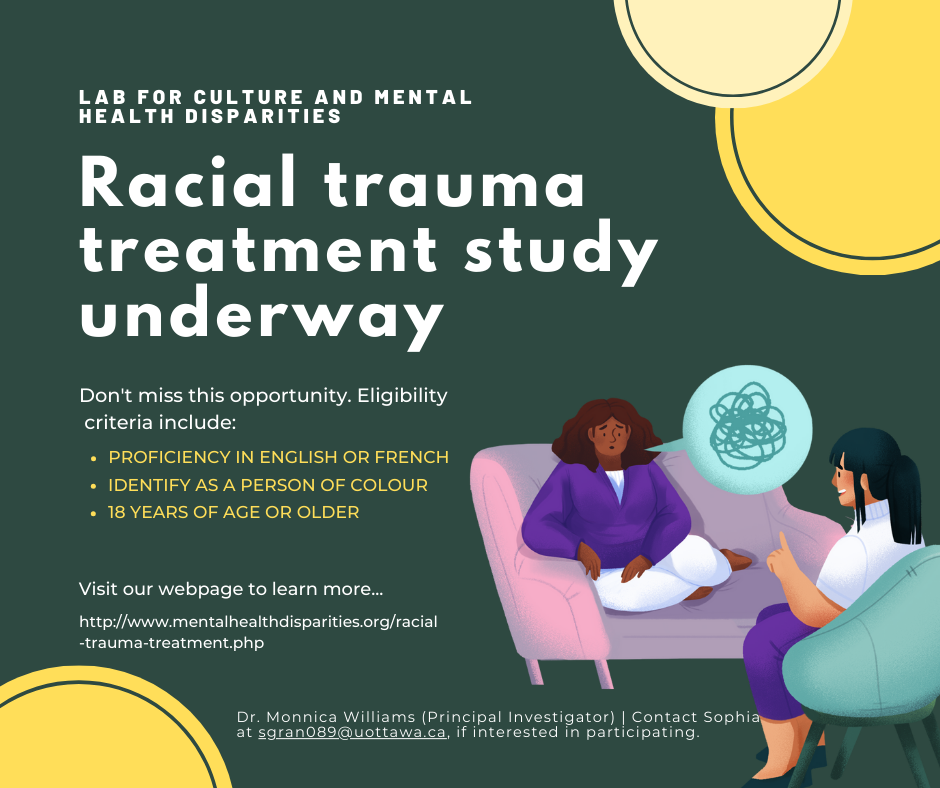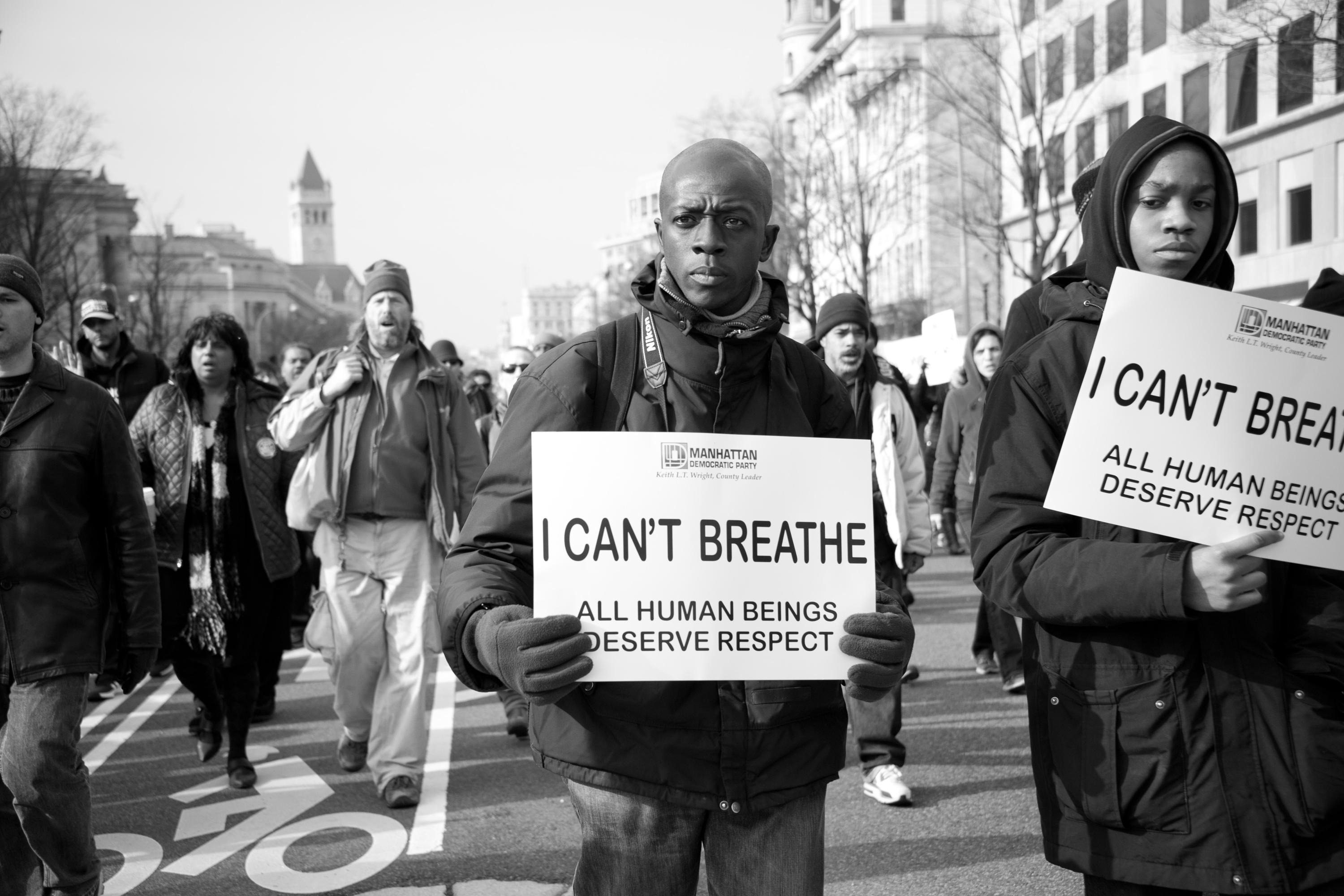Racial Trauma Research

Treatment Study Now Enrolling
There has been very little research about how to help people suffering from racial trauma. The problem is due in part to the lack of research on treatments for racial trauma. Designed and supervised by Dr. Monnica Williams, this study aims to determine if symptoms of racial trauma can be treated using a suite of evidence-based techniques ("Racial Stress and Trauma Treatment Protocol”). This protocol is the foundation of the book A Clinician’s Guide to Healing the Wounds of Racial Trauma by Dr. Williams.
The protocol itself includes 12 sessions, each 60-minutes in length, designed to take place over a three-month period. Sessions will occur via Zoom. In addition to session attendance, participants will complete certain questionnaires over the course of the study to help the research team better understand if and how the protocol is working. From week to week there will also be homework activities for the participants to undertake. To acknowledge participant efforts, each participant will be compensated for completion of the treatment protocol.

The Mental Health Toll of Racism
Our lab is dedicated to advancing the understanding of racial trauma and developing tools and interventions to address its impact.
- Measuring the mental health effects of racism
- Psycho-physiological markers of racial trauma
- Treating the trauma of racism
A core focus of our work is the validation of questionnaires and clinical interviews to assess the effects of racism and discrimination. These tools are essential for accurately identifying the psychological toll of racial trauma and informing tailored therapeutic interventions for individuals and communities affected by systemic racism.
We have been working on the development of the Oppression-Based Traumatic Stress Inventory (OBSTI), a groundbreaking measure designed to capture the distress and trauma resulting from multiple sources of oppression and marginalization. This work builds on evidence from projects like our analysis of the National Survey of American Life (NSAL), which reveals significant gender differences in trauma exposure among Black Americans, with both men and women facing alarming levels of trauma over their lifetimes. By documenting these experiences, we aim to shed light on the differential impact of intersectional trauma in BIPOC to guide future research and policy.
Through projects like the Racial Stress and Trauma Treatment Protocol, we explore the psychological consequences of racism, such as depression and chronic stress, and develop culturally informed interventions to help those affected heal and thrive. Our work collectively aims to contest the harms of systemic inequalities and provide solutions for individuals and communities to recover from the wounds of racial trauma.
